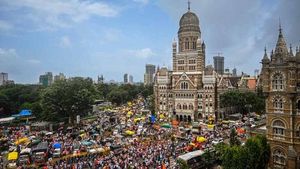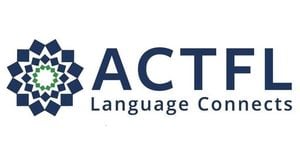The United Arab Emirates (UAE) has undergone significant transformation over the last fifty-four years, particularly by sidestepping its reliance on oil and nurturing its non-oil sectors to now account for more than 74% of its gross domestic product (GDP). Highlighted by industries such as finance, technology, logistics, and tourism, this shift is not merely statistical—it's emblematic of the UAE's larger narrative of adaptation and resilience.
With the pace of global change intensifying, the UAE serves as a compelling case study on how to turn volatility and disruption—be it through climate change or technological advancement—into opportunity. This shift has been significantly informed by the UAE’s founding father, Sheikh Zayed bin Sultan Al Nahyan, who championed the vision of unity, collaboration, and long-term thinking.
The World Economic Forum’s Global Risks Report 2025 captures our era of complexity and interconnected threats, warning us of possible climate tipping points, economic inequality, and technological disruption. This not only raises questions about our ability to adapt but also emphasizes the need for collective action among governments, businesses, and civil society.
"Adapting to disruptions requires not isolated effort but collective, collaborative action across governments, businesses and civil society," stated the World Economic Forum. The UAE's experience shows how these collaborative efforts can lead to meaningful solutions. For example, COP28, the largest and most inclusive climate summit, exemplified the power of multi-stakeholder engagement. It assembled governments, businesses, civil society, and Indigenous Peoples, resulting in pivotal commitments to triple renewable energy capacity and double energy efficiency. One remarkable outcome from COP28 was the mobilization of $7 billion through the first-ever Business and Philanthropy Climate Forum, highlighting the driving impact of inclusivity.
Over the last half-century, the UAE has not only diversified its economy but also transformed itself from no natural resources beyond oil to becoming a hub for global trade and innovation. It now stands out as one of the top three most economically influential countries, trailing only behind China and the USA, according to recent surveys.
A significant factor fueling this growth has been the UAE’s willingness to engage all sectors collaboratively. Through initiatives like Masdar—dubbed the world’s largest single investor in renewable energy—and Mubadala's role as the most proactive sovereign wealth fund worldwide, the UAE exemplifies the benefits of partnerships beyond the government sphere. This inclusive approach allows for amplifying the strengths of distinct sectors, particularly as the UAE expands its influence across Africa by supporting businesses and fostering local contributions.
Notably, the tourism sector has surged as well; it now generates almost 12% of the UAE's GDP, outpacing nations like Italy, France, and the UK. These economic indicators are no accidents; they are the results of calculated and consistent efforts to connect different sectors, nurturing relationships between government entities and private businesses.
According to the World Economic Forum, "The UAE’s collaborative and multi-stakeholder development model may hold important lessons for the challenges of our time." This growing synergy showcases how strategic partnerships can yield greater national resilience and propel global impact.
By utilizing philanthropic capital not merely to solve immediate gaps but as tools for creating enduring public value, the UAE signals its commitment to sustainable development and inclusivity. The nation, empowered by its hierarchical collaboration principles, believes firmly: "Society moves fastest when it moves together." This mantra is evident not only during events like COP28 but also throughout its national development strategies.
Undoubtedly, today's challenges are multifaceted, yet the UAE's steadfast direction through inclusivity, innovation, and adaptability offers valuable lessons and inspiration for other countries facing similar trials and tribulations. The narrative of the UAE—once founded on fragile circumstances—now portrays the beneficial outcomes of cooperation, highlighting the collective wisdom and resources necessary to forge sustainable futures.
Moving forward requires more than solo efforts; it demands unity and collaboration. The global community stands on the brink of transformative potential, armed with the insights gleaned from the UAE's remarkable story. Will we, like the UAE, choose to embrace collaboration and partnership as the cornerstone of our approach to tackling pressing global issues?



